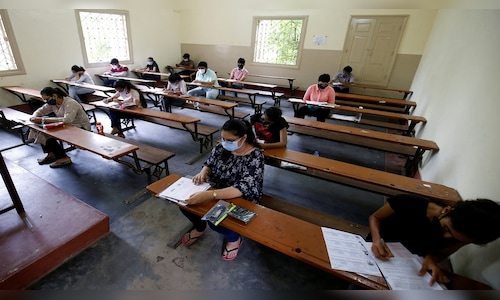Education is more than just a process of acquiring knowledge—it’s a lifelong journey that shapes individuals, empowers societies, and builds the foundation for a successful and fulfilling life. From early childhood through adulthood, education nurtures cognitive development, cultivates critical thinking, fosters emotional intelligence, and opens the door to countless opportunities. In today’s complex and rapidly evolving world, the value of a strong educational foundation has never been greater.
Understanding the Purpose of Education

Beyond Academics: The Broader Role of Education
While academics are central to the educational process, the true scope of education extends far beyond textbooks and tests. Education helps individuals understand the world around them, engage with others in meaningful ways, and develop values like responsibility, respect, and empathy.
Education as a Lifelong Asset
A solid education doesn’t just prepare students for a job—it equips them with tools they will use throughout life. Skills like communication, problem-solving, collaboration, and adaptability become vital across careers and in personal decision-making.
Early Childhood Education: The First Building Block
The Importance of Early Learning
The early years of life are crucial for brain development. Children exposed to quality early education demonstrate better cognitive abilities, emotional regulation, and social skills later in life. Programs that emphasize play-based learning, storytelling, and interactive activities stimulate creativity and curiosity.
Long-Term Impact
Studies show that children who attend preschool and receive early support perform better academically, have lower dropout rates, and are more likely to pursue higher education. Early investment in education sets a precedent for lifelong achievement.
Primary and Secondary Education: Laying the Core Foundation
Skill Development and Personal Growth

In primary and secondary school, students gain essential skills in reading, writing, math, and science. These are not just academic milestones—they serve as the foundation for more advanced learning and critical thinking.
Shaping Identity and Confidence
During these formative years, students also begin to form their personal identity. Positive school experiences, supportive teachers, and inclusive environments help build confidence, social awareness, and resilience.
The Role of Teachers
Educators are more than content deliverers—they are mentors, role models, and motivators. A skilled teacher can inspire students, encourage intellectual curiosity, and make learning engaging and meaningful.
Higher Education: Expanding Horizons
Deepening Knowledge and Specialization
Higher education allows students to explore areas of interest in depth, specialize in a field, and engage in research and innovation. Whether through universities, technical institutes, or vocational training, post-secondary education enhances career prospects and personal growth.
Critical Thinking and Innovation
Colleges and universities are incubators for critical thinking and problem-solving. They challenge students to question assumptions, consider diverse perspectives, and develop original ideas—skills that are essential for success in any profession.
Networking and Career Pathways
Beyond academics, higher education provides valuable opportunities for networking, internships, and real-world experiences. These connections often lead to job placements and long-term professional relationships.
Lifelong Learning: Education Beyond the Classroom
Continuous Learning in the 21st Century
In a world where industries evolve rapidly and new technologies emerge constantly, learning doesn’t stop after graduation. Lifelong learning—through workshops, online courses, certifications, and self-study—ensures individuals remain competitive and adaptable.
Personal Enrichment
Education also enriches life on a personal level. Learning new languages, understanding history, or studying the arts enhances self-awareness, broadens perspectives, and contributes to emotional and intellectual well-being.
Education and Social Development
Reducing Inequality
Access to quality education is one of the most powerful tools for reducing poverty and inequality. It empowers marginalized communities, promotes gender equity, and improves social mobility.
Civic Responsibility
Educated individuals are more likely to participate in civic activities, vote, volunteer, and contribute to their communities. Education fosters a sense of responsibility and encourages active engagement in societal issues.
Health and Well-Being
Education is strongly linked to better health outcomes. Educated individuals are more likely to make informed health decisions, seek medical care, and support healthy lifestyles for themselves and their families.
Barriers to Education
Economic and Social Challenges
Millions of children around the world are still denied access to education due to poverty, conflict, gender discrimination, and lack of infrastructure. These barriers not only prevent personal growth but also limit community and national development.
Digital Divide
The COVID-19 pandemic highlighted stark inequalities in access to online learning. Students without internet or devices were left behind, underscoring the need for equitable digital infrastructure.
Quality of Education
Access alone isn’t enough—education must be relevant, inclusive, and of high quality. Undertrained teachers, outdated materials, and overcrowded classrooms can hinder learning outcomes.
The Role of Technology in Education

Expanding Access and Flexibility
Online learning platforms, virtual classrooms, and digital resources have revolutionized how people learn. Students in remote or underserved areas can now access quality content and connect with educators globally.
Personalized Learning
AI and data analytics enable personalized learning experiences tailored to individual strengths, weaknesses, and interests. This adaptive learning model enhances engagement and improves performance.
Preparing for the Future Workforce
Technology-driven education equips students with digital literacy, coding skills, and familiarity with collaborative tools—critical competencies in the modern workplace.
Supporting Education: What Can We Do?
Investing in Schools and Educators
Governments, communities, and private organizations must prioritize education funding, teacher training, and curriculum development. Investing in education is investing in the future.
Promoting Inclusive Policies
Policies that support free or affordable education, accessible learning for students with disabilities, and safe school environments are essential for creating equitable opportunities for all.
Encouraging a Culture of Learning
Parents, guardians, and community leaders can model a love of learning, celebrate academic achievements, and support children in their educational journeys.
Also Read : How Technology is Shaping Modern Education
Conclusion
Education is the cornerstone of lifelong success. It empowers individuals to reach their potential, fosters innovation, and drives social progress. From early childhood through adulthood, education shapes who we are and how we interact with the world. As societies continue to evolve, so must our approach to learning. By removing barriers, embracing innovation, and investing in inclusive, quality education, we can build a brighter, more equitable future for all.
FAQs
Why is education considered a lifelong process?
Education is not limited to school years. It encompasses all forms of learning throughout life—formal, informal, and experiential—that contribute to personal and professional development.
How does early childhood education impact future success?
Early childhood education lays the foundation for cognitive, emotional, and social development. Children who receive quality early education are more likely to succeed academically and in life.
What role do parents play in education?
Parents support learning by creating positive home environments, encouraging curiosity, and staying involved in their child’s academic progress. Their attitudes toward education can significantly influence outcomes.
How can we make education more accessible?
Improving infrastructure, offering financial aid, investing in technology, and promoting inclusive policies can help bridge gaps and make education accessible to all.
What skills should education focus on in the 21st century?
In addition to foundational subjects, education should emphasize digital literacy, critical thinking, creativity, emotional intelligence, and adaptability to prepare students for an unpredictable future.








